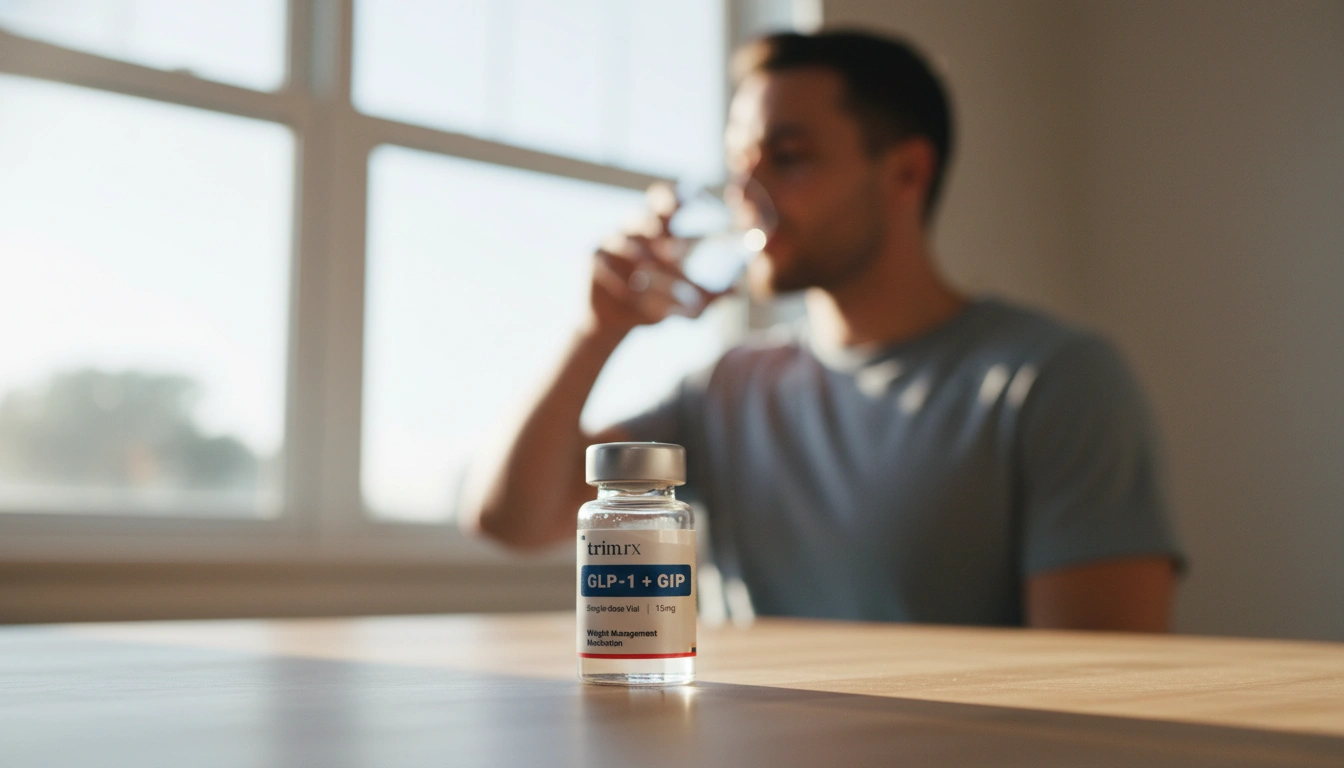Is GLP-1 the Same as Ozempic? Understanding the Differences and Similarities

Have you ever found yourself wondering about the buzz surrounding weight loss medications like Ozempic, or perhaps you’ve encountered the term GLP-1 in your search for effective weight management solutions? As the conversation around obesity and diabetes management continues to evolve, it’s crucial to clarify these terms and understand their implications for your health journey. In this blog post, we will explore the relationship between GLP-1 and Ozempic, shedding light on their distinct roles, mechanisms, and how they can contribute to a healthier lifestyle.
Introduction
In recent years, the rise of medications like Ozempic has sparked interest and curiosity among individuals seeking effective weight management strategies. With obesity affecting millions worldwide, innovative solutions are more relevant than ever. In fact, according to the World Health Organization, obesity has almost tripled globally since 1975, making it a pressing public health issue. This alarming statistic highlights the significance of understanding weight management tools like GLP-1 receptor agonists.
So, what exactly is GLP-1, and how does it relate to Ozempic? By the end of this post, you will have a comprehensive understanding of their similarities and differences, enabling you to make informed decisions about your health and weight loss journey.
What You Will Learn
In this post, we will cover:
- An overview of GLP-1 and its physiological roles
- The specifics of Ozempic as a GLP-1 receptor agonist
- How GLP-1 medications help with weight loss and diabetes management
- The differences between GLP-1 and Ozempic
- The importance of personalized treatment options in weight management
Together, we’ll navigate the complex landscape of GLP-1 and Ozempic, empowering you to take charge of your health.
Understanding GLP-1: The Hormone Behind the Science
What is GLP-1?
GLP-1, or glucagon-like peptide-1, is a hormone produced in the intestines that plays a vital role in regulating blood sugar levels and appetite. It is released in response to food intake, where it stimulates insulin secretion, inhibits glucagon release, and slows gastric emptying. These actions help manage blood sugar levels, making GLP-1 a crucial player in metabolic health.
The Physiological Role of GLP-1
The physiological functions of GLP-1 include:
- Insulin Secretion: GLP-1 enhances the secretion of insulin from the pancreas in a glucose-dependent manner, helping to lower blood sugar levels.
- Appetite Regulation: It reduces appetite by acting on the brain, signaling fullness, and decreasing food intake.
- Slowed Gastric Emptying: By delaying gastric emptying, GLP-1 promotes a prolonged feeling of satiety after meals.
The Clinical Significance of GLP-1
GLP-1’s multifaceted role has led to its application in treating type 2 diabetes and obesity. Medications that mimic or enhance GLP-1’s effects are known as GLP-1 receptor agonists, which include drugs like Ozempic. Research has demonstrated that these medications can lead to significant weight loss and improved glycemic control, making them invaluable in managing metabolic disorders.
Ozempic: A GLP-1 Receptor Agonist
What is Ozempic?
Ozempic is the brand name for semaglutide, a GLP-1 receptor agonist specifically approved for the treatment of type 2 diabetes. It works by mimicking the action of GLP-1, thereby enhancing insulin secretion, lowering glucagon levels, and promoting satiety.
How Does Ozempic Work?
Ozempic operates through several mechanisms:
- Increased Insulin Production: It stimulates the pancreas to produce more insulin when blood glucose levels are elevated.
- Reduced Glucagon Levels: By suppressing glucagon secretion, Ozempic helps prevent the liver from releasing excess glucose into the bloodstream.
- Appetite Suppression: Ozempic acts on the brain to promote feelings of fullness, which helps in reducing food intake.
- Gastric Emptying Delay: It slows the rate at which food exits the stomach, contributing to prolonged satiety.
The Benefits of Ozempic
Research has shown that Ozempic can lead to substantial weight loss in individuals with obesity or those struggling to manage their weight. Clinical trials indicate that patients using Ozempic can lose an average of 15% to 20% of their body weight over time, resulting in improved overall health and reduced risks associated with obesity.
GLP-1 vs. Ozempic: Key Differences and Similarities
Similarities
- Mechanism of Action: Both GLP-1 and Ozempic aim to regulate blood sugar levels and appetite. Ozempic mimics the effects of GLP-1, enhancing its natural actions.
- Health Benefits: Both contribute to weight loss and improved glycemic control, playing a significant role in managing type 2 diabetes and obesity.
Differences
- Origin: GLP-1 is an endogenous hormone produced naturally in the body, while Ozempic is a synthetic medication designed to replicate GLP-1’s effects.
- Approval and Indications: Ozempic is FDA-approved for managing type 2 diabetes, while GLP-1 serves as a broader term encompassing the natural hormone and various medications derived from it.
The Role of GLP-1 Medications in Weight Loss
Clinical Applications
GLP-1 receptor agonists have gained recognition not only for their effectiveness in managing diabetes but also for their role in weight loss. Studies have shown that these medications can significantly reduce body weight by promoting satiety and decreasing overall caloric intake.
Evidence-Based Support
Clinical evidence supports the use of GLP-1 medications like Ozempic for weight management. For instance, a recent study indicated that participants who utilized semaglutide (Ozempic) lost an average of 15% of their body weight over 68 weeks, showcasing the potential of GLP-1 receptor agonists in long-term weight management strategies.
Personalized Approaches to Weight Loss
At TrimRx, we believe that achieving sustainable weight loss is a journey that requires personalized care and support. Our approach integrates cutting-edge telehealth innovations with effective weight loss solutions. By completing our free assessment quiz, individuals can receive a tailored treatment plan based on their unique needs and goals.
Take our free assessment quiz to see if you qualify for our prescription weight loss medications.
Conclusion
Understanding the relationship between GLP-1 and Ozempic is essential for individuals navigating their weight loss and diabetes management journeys. While GLP-1 is a naturally occurring hormone crucial for metabolic regulation, Ozempic is a synthetic medication designed to mimic its effects. Both play significant roles in managing blood sugar levels and promoting weight loss, offering powerful tools for those struggling with obesity and type 2 diabetes.
As we continue to explore the landscape of weight management, it’s essential to consider personalized approaches that account for individual health needs. At TrimRx, we are committed to providing compassionate care that respects each person’s unique journey. By combining advanced medical science with modern technology, we aim to empower individuals to embrace healthier lifestyles.
If you’re interested in enhancing your weight loss journey, consider our quick-access supplements, such as our GLP-1 Daily Support and Weight Loss Boost. These supplements can support your overall wellness as you navigate your path to a healthier you.
FAQ
Is Ozempic the same as other GLP-1 medications?
No, while Ozempic is a GLP-1 receptor agonist, other GLP-1 medications, such as Wegovy and Rybelsus, may have different indications and dosing recommendations.
Can anyone take Ozempic for weight loss?
Ozempic is primarily prescribed for individuals with type 2 diabetes. It may be used off-label for weight loss, but it’s essential to consult a healthcare professional to determine the best options tailored to your needs.
Are there side effects associated with GLP-1 medications like Ozempic?
Like any medication, GLP-1 medications may have side effects. Common side effects include nausea, vomiting, and gastrointestinal discomfort. It’s important to discuss potential side effects with a healthcare provider.
How can I determine if GLP-1 medications are right for me?
The best way to determine eligibility for GLP-1 medications is through a comprehensive assessment with a healthcare provider. At TrimRx, we offer a free assessment quiz to help identify suitable treatment options.
What steps should I take to start my weight loss journey?
Starting your weight loss journey involves a combination of healthy eating, regular physical activity, and potentially exploring medication options like GLP-1 agonists. Taking our free assessment quiz can be a great first step toward personalized support.
By understanding the nuances of GLP-1 and Ozempic, we can better equip ourselves to navigate our health journeys and make informed decisions that support our well-being. Let’s embrace this journey together!

Transforming Lives, One Step at a Time
Keep reading
Vitamin B12 and GLP-1 Medications: What to Know
GLP-1 medications can lower B12 absorption and intake; learn symptoms, food sources, supplement options, and how to monitor levels.
Semaglutide Injection Site Reactions: What To Know
Learn why semaglutide injections can cause redness, swelling or nodules, how to prevent and treat them, and when to seek medical care.
TrimRx vs Friday’s
Compare TrimRx and Friday’s telehealth GLP-1 weight-loss programs: pricing, medical support, coaching, delivery, and which fits your needs.



